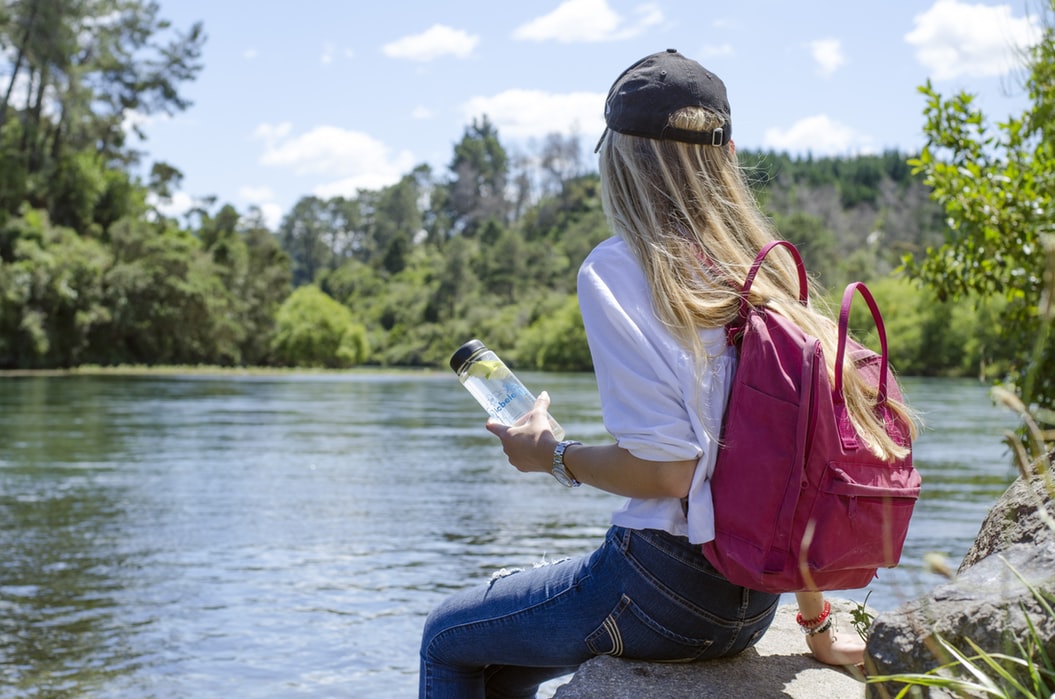The Rise of the Sustainable Consumers

As concerns about climate change grow, a new type of consumer has emerged. A consumer who is not only aware of how their own actions affect the environment, but also how their purchasing habits can contribute to the bigger picture. In the past ten years we’ve seen a growing trend in products that appeal to this new sustainable consumer. And although these products are often seen as a fad, according to a study by Tetra Pak, 63% of people believe that environmental issues is one of the top global concerns, and “2 in 3 consumers believe we’re heading for environmental disaster unless we change our daily habits quickly”.
The food and beverage industry has a huge impact on the environment. Whether that be through production or packaging, consumers are growing more concerned that the current status quo is no longer sustainable. Recently, on our podcast Just a Taste, we spoke with Phil Wong and Dave Betts of Misfit Foods to discuss how their 50/50 vegetable and humanely raised chicken sausages are filling a void in the market for consumers looking for a healthier alternative to traditional sausage as well as those concerned about how their eating habits can affect the environment.
Eat Less Meat
Believe it or not, the meat production industry is one of the biggest contributors to environmental pollution. According to an article by Civil Eats, “Emissions from livestock account for about 14.5 percent of total greenhouse gas emissions, globally, and roughly two thirds of those emissions come from cattle—mostly from methane burped by cows, growing feed and clearing land for grazing and feed crops”. And although there has been a resurgence of plant-based meats (read our blog on plant-based burgers to learn more), moving to a purely vegetarian or vegan lifestyle isn’t necessarily the answer.
Adhering to a plant-based diet generally has a lower environmental impact, however it isn’t suitable for everyone – whether that be due access to resources, health concerns, or financial limitations. And thus, we must turn our attention to the production of meat, and how we can improve it in order to lessen its impact on the environment.
For example, Misfit Foods has created a sausage that uses half vegetables and half humanely raised chicken in order to appeal meat-lover while still lessening their production of meat. Their website states, “[W]e know that while many consumers are trying to reduce their meat intake, they don’t want to cut it out entirely. We wanted to meet people where they are—so we set our sights on making a veggie-forward product that meat-lovers and meat-reducers can all get on board with”.
In summary, eating less meat doesn’t mean cutting it out entirely. Rather, consumers are looking for products that fit into their current diet, while generally still having a positive impact on the environment.
Don’t Forget the Packaging
Consumers aren’t just concerned about the product’s impact on the environment, but also whether or not the packaging is sustainable as well. As the discussion around single-use plastic (and other non-recyclable materials) grows, it’s becoming extremely prevalent for consumers to opt for brands that use packaging that back-up their sustainable ideology. This can mean many different things, including:
- Does the product use an excessive amount of plastic?
- Is it made from recycled material?
- Can the packaging be reused?
- Is it compostable?
According to an article of Food Dive listing the top trends in packaging that we should look out for in 2020, many brands will start to gravitate towards eco-friendly alternatives to traditional packaging. In fact, we may even see a rise in zero-waste products as well.
Talk the Talk, Walk the Walk
In the end of the day, sustainable consumers are look for transparency and authenticity from the brands they purchase from. They not only want products that are good for them, but also products that are good for the environment. In our interview, Phil Wong stated, “Food isn’t about what we’re putting in our bodies, but rather how we are treating the planet.”
For more information about sustainability, and to learn more about Misfit Foods, listen to our podcast Just a Taste with Phil Wong & Dave Betts or visit misfitfoods.com
